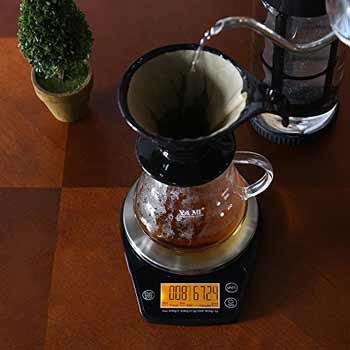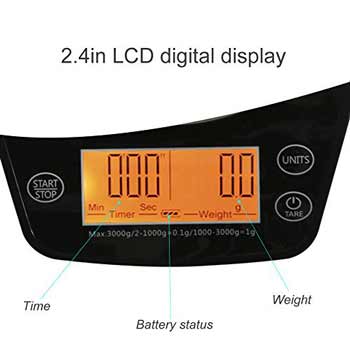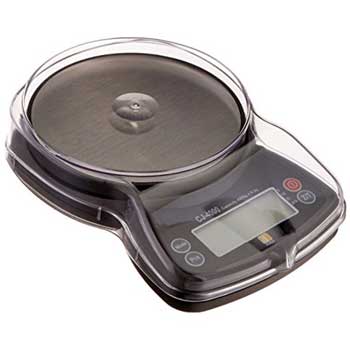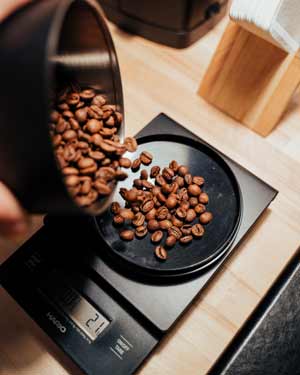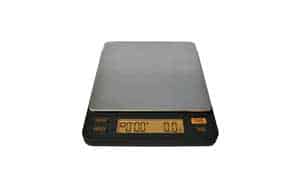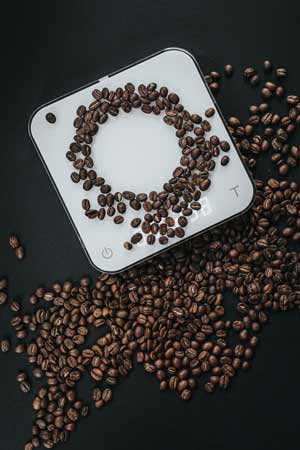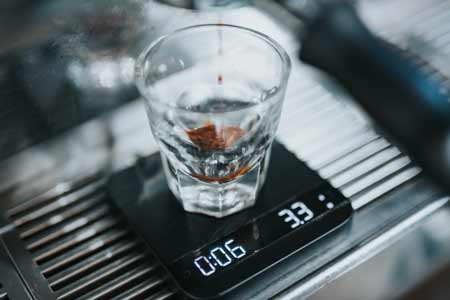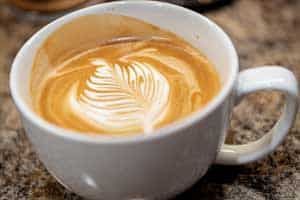Features To Consider With the Best Coffee Scales
Ease of use:
Pick your scale based on how simple it is to operate and calibrate for your needs. Many digital scales are much more intuitive than some other scales that make it difficult to operate without reading the manual.
Battery or Plug-in:
Most scales will typically operate on aaa batteries, but other scales will have an option for both AC power or aaa batteries. If you need to use your scale away from power sources or can't always locate one, then look into getting some rechargeable aaa batteries or picking up a USB C rechargeable scale.
Calibration:
Having an accurate coffee scale is vital, especially when weighing for espresso dosages, which are very particular. If you purchase a scale that falls out of whack often, it's important to have the option of calibrating it.
Tare function:
Most scales are going to have a "tare" function that will let you "zero" out the weight, which comes in handy for holding your vessel, zeroing out the weight, then measuring out your coffee. If it doesn't, keep shopping for a scale that does.
Durability:
Even if you're not rough with your equipment, a digital coffee scale is susceptible to water damage. Preferably, a coffee scale should offer some sort of resistance against spills and should be easy to clean.
Weight Capacity:
What you use your scale for will determine the maximum weight capacity you'll need. If you're only using your scale for coffee, a lighter capacity like 2000 grams should suffice. However, if you'll also be using it for kitchen recipes, look for kitchen scales with higher weight capacities upwards to 11 pounds or sometimes more.
Scales for Espresso:
If you're using a coffee scale explicitly
for espresso, it should read in grams and have a
sensitivity to the tenth of a gram (0.1 gram increments). If you don't need or care to be that precise, you can get away with a resolution of 0.5 gram or even 1 gram accuracy, but espresso can be quite finicky.
Scales for Other Brew Methods:
A coffee scale can be used for other brew methods other than espresso. For example, a coffee scale can be used to weigh water when making Chemex, French press, or even
Moka pot coffee. Weighing water is important because it allows you to use the correct ratio of water to coffee, which results in a better cup of coffee.
Units of Measurement:
If you intend to use your scale for cooking applications too, consider a scale that will measure in both grams and ounces. This will simplify the process by not having to do a bunch of conversions for recipes that call for measurements by weight.
Resolution/Graduation:
The better the resolution, the more accurate your measurements will be. Some scales will feature espresso modes, but if not, look for a scale that has a 0.1 gram precision (so it reads down to 100mg) if you intend on weighing coffee for espresso. This is fairly precise and not all scales will have this precision, especially most kitchen scales. Often, a pocket scale will have a precision up to 0.01 grams, but that's a little overkill in the coffee realm.
Auto Off Feature:
Most scales will have an auto off feature for conserving battery power, but it's always a good idea to check before purchasing. Some will have a rechargeable battery, which makes the auto off feature less important. Also, consider using your own rechargeable AAA batteries for the long haul.
Top 5 Best Coffee Scales in 2022 - Our Picks
Considering all these variables, we’ve handpicked the top 5 best coffee scales based on precision, accuracy, budget, application, reliability, speed, and overall consumer satisfaction in the following coffee scale reviews.
